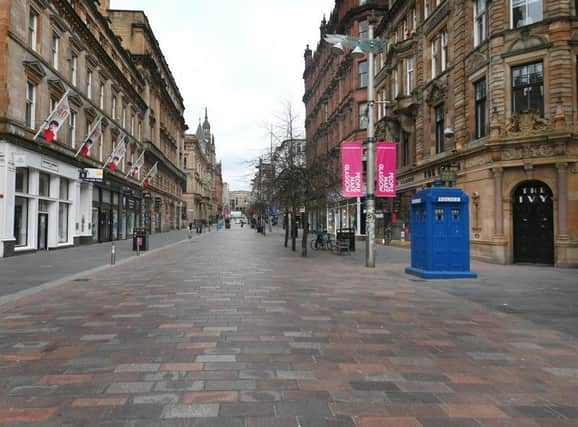Analysis: What are health risks of Scotland going back into lockdown in winter?


The five-tier system will see council areas put into the lowest tier returning to near normality, while those in the highest tier will face a full lockdown similar to that initially imposed in March.
Current proposals suggest it is unlikely that any councils will be immediately put in the top tier, but under the new system this is a possibility if cases rise.
Advertisement
Hide AdAdvertisement
Hide AdThe economic effects of going back into lockdown have been much-discussed, with hospitality venues already crying for help under the temporary restrictions in the central belt.
A full lockdown would exacerbate the non-Covid health problems already bubbling to the surface as a result of seven months of full and partial restrictions. If aspects of the NHS remobilisation were to be paused, backlogs in testing and treatment of other health issues would only grow.
It would also come into force as Scotland heads into winter, meaning that people already exhausted by seven months of worry and uncertainty will be forced once again to isolate from their families and friends and spend time at home.
While some have been very enthusiastic about the idea of embracing the great outdoors and pub patio heaters, if indoor meetings are restricted during the winter it is likely to be impossible for many people to meet outside as darkness draws in and temperatures plummet.
This means that those who live alone or with housemates they are not close to could face long periods of time without seeing friends or family, and that everyone will have restricted access to the social events, club memberships or even face-to-face time with colleagues which normally keep many of us going during winter.
A new study from Glasgow University released on Wednesday found that the first six weeks of the initial lockdown had a major impact on the mental health and wellbeing of people in the UK.
Published in the British Journal of Psychiatry, it is the first publication from a large-scale research programme funded by SAMH, Samaritans and the Mindstep Foundation.
The research, led by Glasgow University’s Professor Rory O’Connor, Chair in Health Psychology at the University’s Institute of Health and Wellbeing, found through a large survey that suicidal thoughts increased over the first six weeks of lockdown.
Advertisement
Hide AdAdvertisement
Hide AdThose from lower socio-economic backgrounds, young people and women all showed worse mental health outcomes.
The study also looked at three “waves” of lockdown between March 31 and May 11, with a quarter of respondents (26 per cent) saying they had experienced moderate depressive symptoms during the lockdown.
If any councils in Scotland are placed into a second lockdown under the new tier system, it is likely to have the same negative effect on people’s mental health, in all probability exacerbated by the lack of sunlight and the level of fatigue the population is already experiencing as a result of anxiety around the pandemic.
While everyone hopes no council areas will need to be put under the highest tier of restrictions, if they are there will need to be clear
consideration of those factors and additional support for those more likely to struggle with the isolation of a new lockdown.